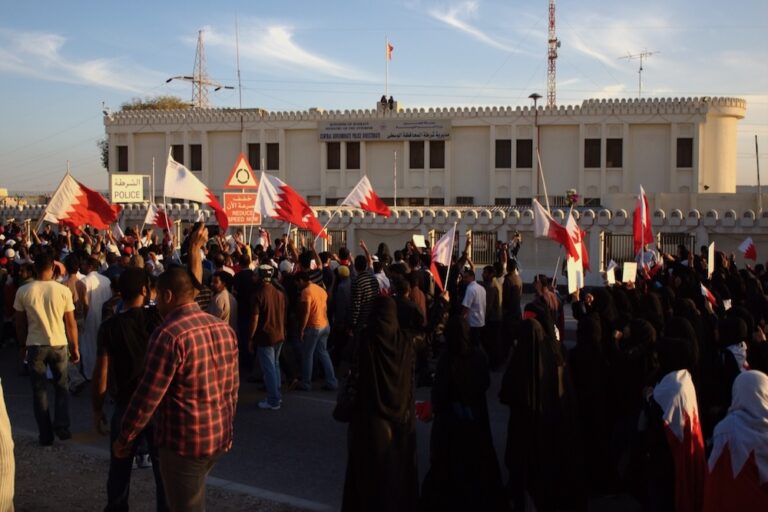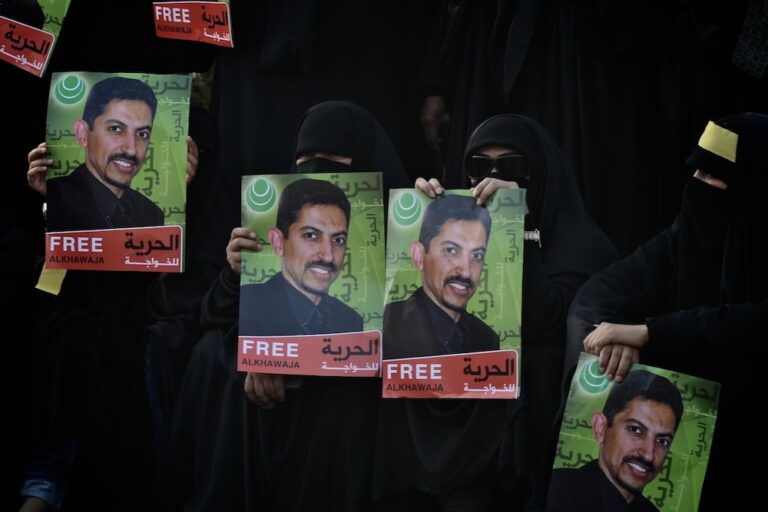The authorities have blocked a personal webpage on the Twitter website, claiming that the owner of the webpage violated the country's printing and publishing regulations.
(BCHR/IFEX) – 10 January 2010 – The authorities have blocked a personal webpage operated by a Bahraini resident on the global social website Twitter, justifying the move by claiming that the owner of the webpage is breaking the country’s law regulating printing, publishing and the press.
The webpage on Twitter, which became known as “Free Bahrain” ( http://twitter.com/FreeBahrain ), posted human rights links, statements and local news quoted from the websites of human rights organisations or published in local and international newspapers about human rights in Bahrain, including statements and reports by the BCHR. The webpage has a large network of friends on Twitter. Twitter is a social networking site usually used by youths, activists and human rights defenders to inform people of their movements, activities and other news which they would like others to read.
The blocking of the webpage was confirmed by the assistant undersecretary of the Ministry of Culture and Information, Dr. Abdullah Yateem, one day after the “Al-Wasat” newspaper reported on the closure. Yateem claimed that the webpage had contravened the laws of Bahrain concerning printing and publication, yet he did not specifically indicate what the violation was or which articles of law it was inconsistent with. Ever since Sheikha Mai Al-Khalifa, who is a member of the ruling family, became the minister of information, the authorities have arbitrarily blocked hundreds of websites, using the fight against pornography and sites that harm national unity as their justification. However, many of the closed sites are dialogue and chat forums, political websites, or blogs of human rights defenders or human rights organisations, including the BCHR and the Arabic Network for Human Rights Information (ANHRI).
The BCHR considers the blocking of the Twitter webpage to be yet another attempt to obstruct the expression of people’s opinions and restrict the available peaceful means of expression. At the same time, the BCHR believes that this action confirms that, with the rapid development of technology, it has become difficult for governments to block all the websites they would like to target. The BCHR views the government’s policy regarding websites as a strengthening of its position on the black list of tyrannical and undemocratic states.
The blocking of websites by the authorities contradicts Bahrain’s commitments as a member in the Human Rights Council and as a party to the International Covenant on Civil and Political Rights (ICCPR). In particular, Article 19 of the ICCPR states that, “Everyone shall have the right to hold opinions without interference” and “Everyone shall have the right to freedom of expression; this right shall include freedom to seek, receive and impart information and ideas of all kinds, regardless of frontiers, either orally, in writing or in print, in the form of art, or through any other media of his choice.”
The BCHR demands that the Bahraini authorities stop targeting websites and dialogue and social forums which criticise government policy. Instead, the government should take the criticism in a positive spirit and use it as a tool towards finding solutions.


